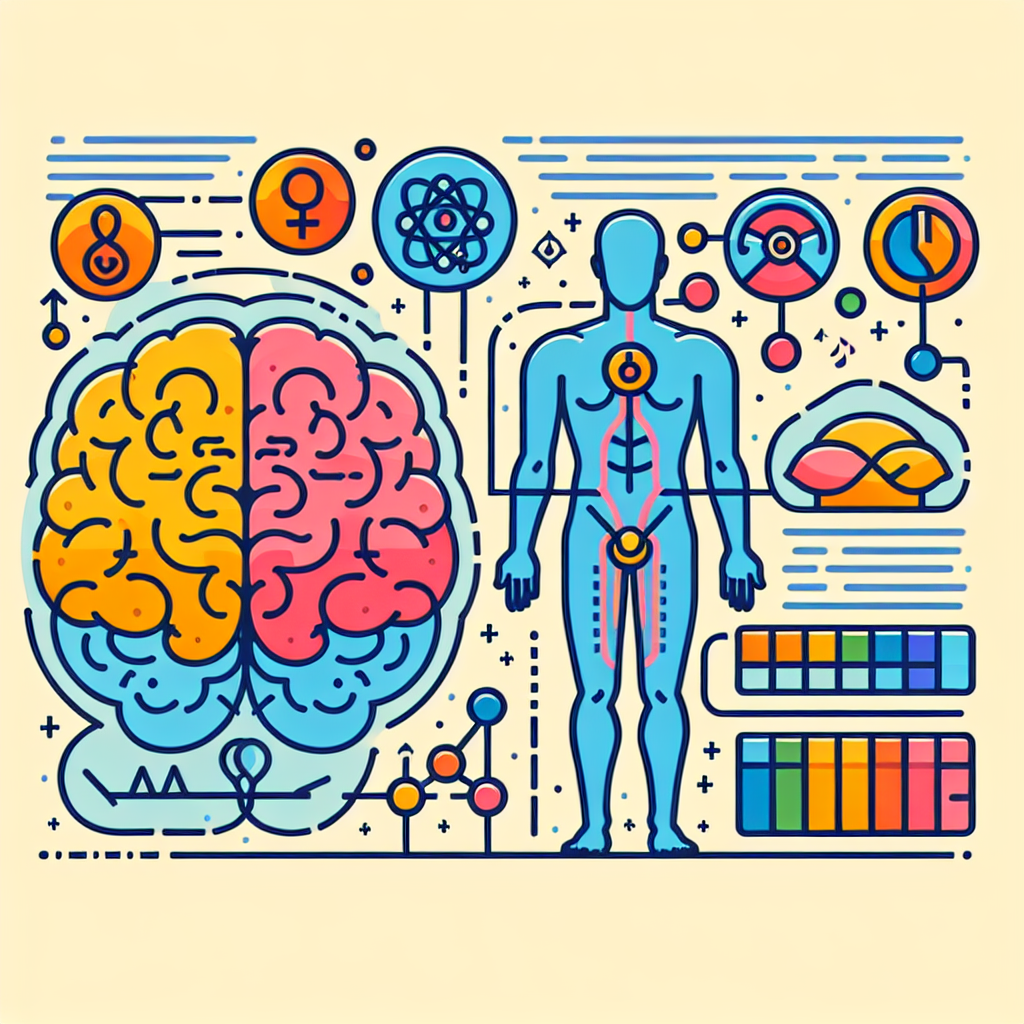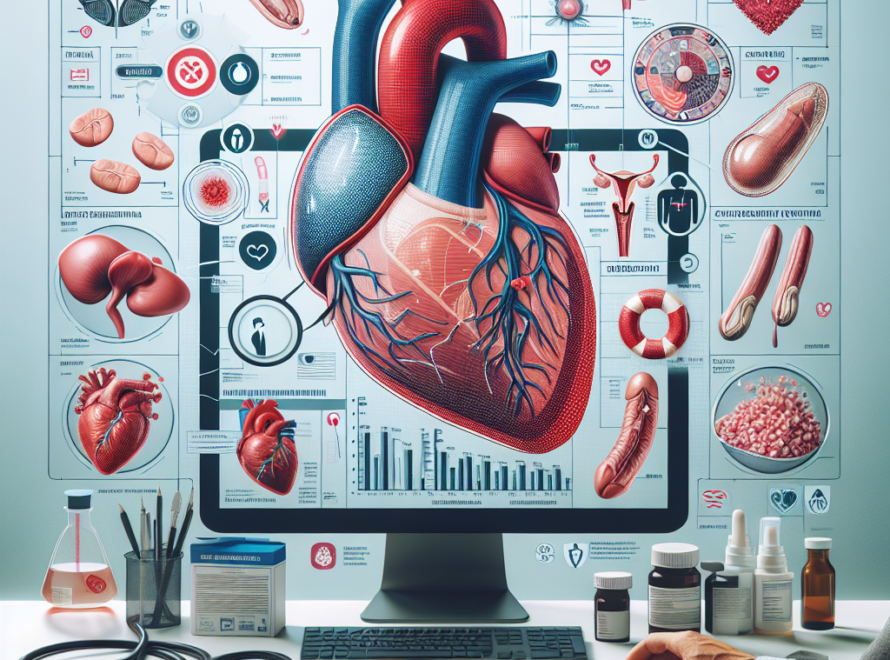The Brain Chemistry Behind Premature Ejaculation (PE): Neurotransmitters and Sexual Response
Understanding the Prevalence of Premature Ejaculation
Premature ejaculation (PE) is one of the most common sexual health issues affecting men. It impacts up to 30% of men globally at some point in their lives (Porst et al., 2007). While stress, hormonal fluctuations, and penile sensitivity are well-known contributors, recent research highlights the crucial role of brain chemistry in regulating ejaculation.
According to Dr. Marcel Waldinger, a pioneer in sexual medicine, “Premature ejaculation is best understood as a neurobiological problem, not just an emotional or relationship issue.”
This article explores how brain chemicals—known as neurotransmitters—impact ejaculation timing, and how treating the root of the issue through brain chemistry may offer more effective solutions.
Rethinking PE: A Neurologically Driven Condition
PE is clinically defined as ejaculation that consistently occurs within one minute of penetration, combined with personal distress or relationship difficulties (American Urological Association, 2021). For years, it was mistakenly labeled as strictly psychological. However, current findings demonstrate that PE is a neurologically-based condition influenced by various neurotransmitters.
The brain initiates a sequence of chemical and electrical signals that govern arousal, erection, and ejaculation. When the balance among these neurotransmitters is disrupted, ejaculation can occur faster than desired.
Think of it like a car with overly sensitive brakes—just a slight press brings everything to a sudden stop. Similarly, the brain’s “ejaculation control system” misfires due to chemical imbalances, leading to premature climax.
Key Neurotransmitters Involved in Ejaculation Timing
Understanding which brain chemicals influence ejaculation can offer insight into potential therapies. These four neurotransmitters play significant roles:
1. Serotonin: Nature’s Ejaculation Delay Mechanism
Serotonin is commonly known as the “feel-good” chemical, but it also plays a major role in controlling ejaculation. High levels of serotonin in specific regions of the brain, such as the lateral hypothalamus, tend to delay ejaculation. Low levels, on the other hand, are linked with PE.
Receptor subtypes are equally important:
– 5-HT1A receptors: Activation can speed up ejaculation.
– 5-HT2C receptors: Activation helps delay ejaculation.
Research shows that men struggling with PE often have overactive 5-HT1A and underactive 5-HT2C receptors, leading to reduced ejaculatory control (Waldinger, 2005).
2. Dopamine: The Driver of Desire
Dopamine plays a pivotal role in arousal and sexual motivation. While it fuels sexual desire, too much dopamine may cause an early climax. It amplifies excitement, which may reduce control—much like stepping on the gas when you’re supposed to slow down.
3. Oxytocin: Promotes Bonding and Ejaculation
Often called the “love hormone,” oxytocin is important for emotional connection and orgasm. Elevated oxytocin levels in the spinal ejaculatory pathway are associated with quicker ejaculation. Scientists are studying oxytocin-blocking medications to potentially delay climax (Argiolas & Melis, 2013).
4. Norepinephrine: The Stress-Associated Messenger
This neurotransmitter is linked to the body’s fight-or-flight response. High norepinephrine levels, often triggered by anxiety, may accelerate ejaculation. This explains why performance anxiety affects both body and brain chemistry.
For example, if you’ve ever felt anxious or under pressure during intimacy and climaxed sooner than expected, norepinephrine likely played a role.
How the Ejaculatory Reflex Arc Works
The ejaculatory reflex arc is a system of spinal and brain signals that trigger ejaculation once stimulation reaches a certain threshold. Serotonin raises this threshold—delaying ejaculation—while dopamine lowers it.
Men who suffer from PE tend to have a naturally lower threshold, which means their brain sends the “climax” signal more rapidly. This is not due to lack of willpower but rather neurological imbalance.
Targeting Neurotransmitters in Modern PE Treatments
Because brain chemistry is central to PE, several treatments now aim to correct neurotransmitter imbalances instead of focusing only on physical sensation.
SSRIs: A Brain-Based Treatment Approach
Selective Serotonin Reuptake Inhibitors (SSRIs) such as paroxetine, sertraline, and fluoxetine, typically prescribed for depression, are also effective in delaying ejaculation. They work by boosting serotonin levels, which can significantly increase ejaculatory latency—by 2 to 10 times in many cases (McMahon et al., 2004).
SSRIs are often used off-label for PE, with some men experiencing benefits within a week. However, side effects like reduced libido, blurred orgasm, or mild nausea can occur. You can explore SSRIs and other treatment options with a licensed provider through edrugstore.com.
Behavioral Methods and Topical Treatments
Behavioral strategies like the start-stop technique or the squeeze method train men to control arousal. When used with desensitizing topical sprays or creams, they can be helpful. However, these do not address underlying neurotransmitter imbalances.
An integrated approach that includes behavioral therapy and medication typically delivers better, longer-lasting results.
Innovative and Experimental Treatments
New research is exploring medications that specifically target the 5-HT2C receptor, which could delay ejaculation more precisely and with fewer side effects than traditional SSRIs. Additionally, oxytocin receptor blockers are being tested to reduce oxytocin activity in the spinal cord and slow down ejaculation (Giuliano & Clement, 2012).
Managing Stress and Hormonal Imbalance
The connection between mental stress and sexual performance is strong. Neurochemicals like norepinephrine and stress hormones such as cortisol rise in response to anxiety and may trigger premature ejaculation.
Effective strategies for managing stress include:
– Mindful breathing exercises
– Yoga and regular meditation
– Cognitive Behavioral Therapy (CBT)
Dr. Mitchell Tepper, a clinical sexologist, says, “The brain doesn’t separate sexual response from emotional state. So what you think and feel deeply impacts how fast or slow you climax.”
By lowering stress and anxiety, you can boost serotonin levels, normalize norepinephrine, and gain better control over your sexual response.
Conclusion: A Brain-First Strategy to Tackle PE
Premature ejaculation goes beyond physical stimulation—it often stems from imbalances in brain chemistry. Understanding the roles of serotonin, dopamine, oxytocin, and norepinephrine provides new pathways to reclaiming sexual confidence and performance.
Whether you’re considering medication, seeking therapy, or focusing on lifestyle changes, approaching PE from a brain-based perspective offers the most holistic and lasting results.
Millions of men worldwide deal with PE, but the condition is both manageable and treatable with modern insights into neuroscience and sexual health.
Take Control of Your Sexual Health Today
Visit edrugstore.com to consult with a certified provider and explore your treatment options. A personalized plan that includes brain-targeting medication, therapy, and lifestyle strategies can help you gain lasting control and satisfaction.
References
– Porst H, et al. (2007). The ISSM definition of premature ejaculation: Development process and assessment. J Sex Med.
– Waldinger MD. (2005). Neurobiological perspective of premature ejaculation. J Urol.
– Giuliano F, Clement P. (2012). Serotonin and oxytocin: New targets for premature ejaculation? Nat Rev Urol.
– McMahon CG et al. (2004). Efficacy of SSRIs in the treatment of premature ejaculation. Int J Impot Res.
– American Urological Association. PE Clinical Guidelines, 2021.
– Argiolas A, Melis MR. (2013). Oxytocin: The essence of sex in the male? Physiol Behav.


